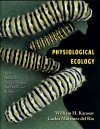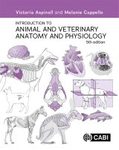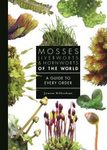![Physiological Ecology Physiological Ecology]()
Click to have a closer look
About this book
Contents
Customer reviews
Biography
Related titles
About this book
Unlocking the puzzle of how animals behave and how they interact with their environments is impossible without understanding the physiological processes that determine their use of food resources. But long overdue is a user-friendly introduction to the subject that systematically bridges the gap between physiology and ecology. Ecologists – for whom such knowledge can help clarify the consequences of global climate change, the biodiversity crisis, and pollution – often find themselves wading through an unwieldy, technically top-heavy literature.
Here, William Karasov and Carlos Martínez del Rio present the first accessible and authoritative one-volume overview of the physiological and biochemical principles that shape how animals procure energy and nutrients and free themselves of toxins – and how this relates to broader ecological phenomena.
After introducing primary concepts, the authors review the chemical ecology of food, and then discuss how animals digest and process food. Their broad view includes symbioses and extends even to ecosystem phenomena such as ecological stochiometry and toxicant biomagnification. They introduce key methods and illustrate principles with wide-ranging vertebrate and invertebrate examples. Uniquely, they also link the physiological mechanisms of resource use with ecological phenomena such as how and why animals choose what they eat and how they participate in the exchange of energy and materials in their biological communities.
Thoroughly up-to-date and pointing the way to future research, Physiological Ecology is an essential new source for upper-level undergraduate and graduate students – and an ideal synthesis for professionals. This is the most accessible introduction to the physiological and biochemical principles that shape how animals use resources. It is unique in linking the physiological mechanisms of resource use with ecological phenomena.
Contents
Preface xi
Acknowledgments xv
Section I: Overview
Chapter One: Basic concepts: budgets, allometry, temperature, and the imprint of history 3
Section II: Chemical Ecology of Food
Chapter Two: The chemistry and biology of food 49
Section III: Digestive Ecology
Chapter Three: Food intake and utilization efficiency 117
Chapter Four: Simple guts: the ecological biochemistry and physiology of catalytic digestion 155
Chapter Five: Photosynthetic animals and gas-powered mussels: the physiological ecology of nutritional symbioses 238
Chapter Six: Digestive symbioses: how insect and vertebrate herbivores cope with low quality plant foods 303
Section IV: The Ecology of Postabsorptive Nutrient Processing
Chapter Seven: Postabsorptive processing of nutrients 397
Chapter Eight: Isotopic ecology 433
Chapter Nine: How animals deal with poisons and pollutants 479
Section V: Limiting Nutrients
Chapter Ten: Ecological stoichiometry 535
Chapter Eleven: Nitrogen and mineral requirements 569
Chapter Twelve: Water requirement and water flux 608
Section VI: Production in Budgets of Mass and Energy
Chapter Thirteen: Growth in budgets of mass and energy 647
Chapter Fourteen: Reproduction in budgets of mass and energy 697
Index 725
Customer Reviews
Biography
William H. Karasov is a professor of wildlife ecology at the University of Wisconsin-Madison. Carlos Martínez del Rio is a professor of zoology and physiology at the University of Wyoming, Laramie.
Monograph
By: William H Karasov(Author), Carlos Martínez del Rio(Author)
744 pages, b/w illustrations
"This extraordinary book by Karasov and Martinez del Rio integrates a wealth of research about how animals select, consume, and process food. The authors treat topics ranging from energy budgets, food chemistry, the structure and function of digestive systems, postabsorptive nutrient processing, and chemical ecology to feeding behavior, growth, production, and reproduction [...] Accessibly written, with clear, informative graphs and line drawings."
– P.E. Hertz, Choice
"This is an excellent textbook for undergraduate – and graduate-level courses, and is recommended for researchers who are interested in an up-to-date overview of this field."
– Raymond Barbehenn, Quarterly Review of Biology
"A big topic demands a big book, with some big thinkers behind it. When I agreed to review this book, I knew, given the authors, that I would see some big thinking, but the size of their effort took me by surprise. Physiological Ecology (all 744 pages, 2.7 liters, and 1.9 kilograms of it!) is a comprehensive yet surprisingly accessible treatment of a topic that is the linchpin for biologists of many stripes [...] So if animals and food webs are central to your interests, you should read this book."
– James J. Eiser, BioScience
"The authors can be very proud of their accomplishments in this book because their text deals with the general problem 'how animals process energy, nutrients, and toxins' in a very detailed, balanced, clearly written, informatively illustrated – in short, in an excellent way! One does not have to be a prophet to state that this book is destined to become a classic; it will become a widespread, often consulted and continually cited source of reference."
– Peter Langer, Mammalian Biology
"This book fills a major gap in the ecological and physiological literature in the most delightful way. An exciting journey into the wondrous mechanical world behind the great diversity of animals on earth, it is an exhaustive overview of everything to do with resource processing and use in animals. From page to page it demonstrates the seamless connection between ecology and physiology. The writing was a joy to read; the authors are in command of the subject and write lucidly about it."
– Theunis Piersma, University of Groningen and Royal Netherlands Institute for Sea Research
"Physiological Ecology addresses an important and intriguing topic that has not been adequately summarized previously; there is no corresponding book that discusses resource use at the level presented here. The authors do a masterful and authoritative job of covering both the basics and the details. The numerous and diverse examples and case studies are great, for they illustrate both the concepts and the authors' obvious pleasure in the underlying natural history – part of the fun of this sort of biology."
– Joel Kingsolver, University of North Carolina, Chapel Hill

































